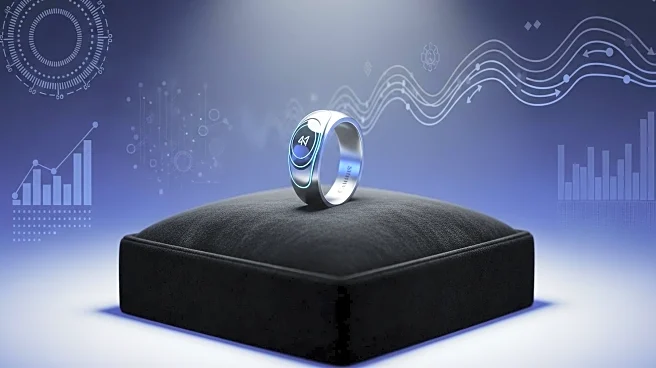What is the story about?
What's Happening?
Oura, a Finnish company known for its smart rings, has successfully raised over $900 million in a Series E funding round, elevating its valuation to $11 billion. The funding was led by Fidelity Management & Research Company, with participation from new investor ICONIQ, as well as Whale Rock and Atreides. This substantial investment is intended to accelerate innovation, expand global reach, and set new standards in wearable technology for preventive health. Oura has sold over 5.5 million rings since its launch in 2015, marking a significant increase from 2.5 million rings sold by June 2024. The company reported revenue of over $500 million in 2024 and anticipates reaching $1 billion in sales this year.
Why It's Important?
The successful funding round and increased valuation underscore Oura's growing influence in the wearable technology market, particularly in the health and fitness sectors. With the new capital, Oura aims to enhance its product offerings and expand its market presence, potentially setting new benchmarks for wearable health technology. This development is significant for the industry as it highlights the increasing consumer demand for health-focused wearable devices. Competitors like Samsung, RingConn, Whoop, and Garmin may face heightened competition as Oura leverages its new resources to innovate and capture more market share.
What's Next?
Oura plans to use the funds to accelerate product innovation and expand its global footprint. The company is likely to focus on enhancing its wearable technology capabilities, particularly in preventive health. As Oura continues to grow, it may explore partnerships or collaborations to further integrate its technology into broader health and wellness ecosystems. The increased competition in the wearable market could lead to more advanced features and offerings from other companies, driving further innovation in the sector.
Beyond the Headlines
Oura's focus on preventive health through wearable technology could have broader implications for public health strategies, potentially influencing how individuals monitor and manage their health. The integration of features like Health Panels for blood testing could pave the way for more personalized healthcare solutions, emphasizing early detection and prevention. This shift towards proactive health management may encourage other companies to develop similar technologies, contributing to a more health-conscious society.














